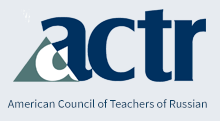Russian Language Journal
Keywords
technology, Russia, language, spelling, textbook
Abstract
The worldwide proliferation of the Internet as a fundamentally new media technology has coincided with a radical social and linguistic liberalization in Russia. This junction changed drastically the interrelationship between the standard language and the non‐standard language varieties. A paradigmatic manifestation of the new Russian linguistic reality is the prevalent Internet trend of alternate spellings and non‐normative lexical use. The phenomenon is frequently referred to as an “Olbanian” language and associated with the counter‐culture of the so‐called “padonki.” Disregarding the fundamental principles of Russian orthography, spelling, and even morphology, the padonki have created an idiom that seemingly allows complete freedom of writing. The practice has been even elevated to the status of an art form dubbed “ORFO‐art,” cf. Shapovalova 2008. Moreover, the recent publication (Sokolovskij 2008) of what the author and master‐mind of the movement Dmitrii Sokolovskii labels “a padonkiʹs bible or textbook of Albanian language” marks the official sanctioning, so to speak, of this new language variety.
Recommended Citation
Hristova, D. S. (2011). Великий и могучий олбанский язык: The Russian Internet and the Russian Language*. Russian Language Journal, 61(1). https://doi.org/10.70163/0036-0252.1099


